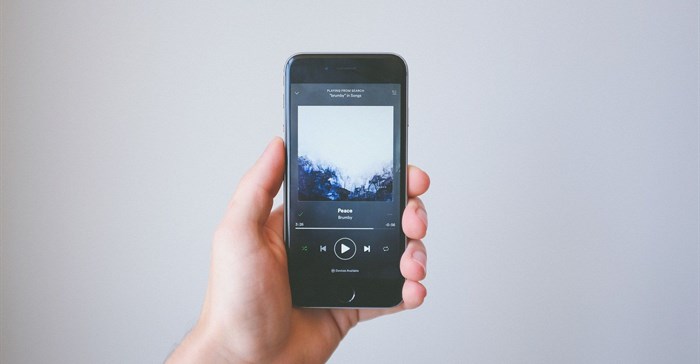The business of music streaming

This has led to many artists asking themselves if the industry is still lucrative and utilising their celebrity status to create brands around themselves. Locally, hip-hop stars such as AKA, Casper, Kwesta and Ricky Rick have discussed the challenges of the music industry, and how they have had to find other means of becoming successful.
Now the question then becomes if consumers have changed the way they consume your product i.e. music, shouldn’t you as the artist then try to adapt your revenue model to grow where you are in comparison.
Market focus – United States of America
To look at this from a numbers point of view, in the United States of America (biggest consumption destination of the year), the music streaming market is $4bn, revenue is expected to show an annual growth rate (CAGR 2018-2023) of 3.5%, resulting in a market volume of $4,957m by 2023. With a current user penetration of 47.3% in 2018 and is expected to hit 59.5% by 2023.

Spotify
The streaming music giant’s initial public offering gave it a market valuation of $26.6bn, As of June 2018, Spotify had 83 million paying subscribers worldwide, up from 57 million paying subscribers in June 2017. Spotify has released its stats for 2018, and now we know how what some 191 million people globally listened to on the biggest streaming service in the world Drake is the world’s most-streamed artist, with more than 8.2 billion streams this year.
The local market
In an article on mybroadband.co.za, MD of Universal Music South Africa and sub-Saharan Africa, Sipho Dlamini stated that that, “In South Africa, although the physical market remains important, there are already over 250,000 paying subscribers on streaming services and we expect the market to grow.”
Revenue in the music streaming segment amounts to US$21m in 2018. Revenue is expected to show an annual growth rate (CAGR 2018-2023) of 6.2%, resulting in a market volume of US$28m by 2023. User penetration is 12.7% in 2018 and is expected to hit 14.2% by 2023. The average revenue per user (ARPU) currently amounts to US$2.82.
| Service | Cost per month | Unique Features |
| Apple Music | R59,99 |
|
| Spotify |
| |
| Joox | R59,99 per month, or alternatively R29,99 per week | 3 million song catalogues |
| Google Play Music | R59,99 per month | 40 million song catalogues |
| Tidal | R135 per month |
|
| Simply Africa (MTN Music Tone) | R60 per month |
|
| Deezer | R59,99 per month | Personalised stream of recommendations, named Flow |
Why the low penetration and what can we do about it
If one looks at the South African context, with only a 14% user penetration, streaming has not had the amount of attention and impact that it has had globally.
It is growing but there a few specific constraints in our market, that make things quite challenging. First, radio dominants, approximately 94% of users listen to music on their radio station. So, from a business perspective, this is largely dictated by the playlist contributors on the major consumer radio stations, and not necessarily the consumer. Music streaming puts the power back into the hands of the consumer, who for the most part dictate their own playlist.
Although it has been highlighted by various activists including the regulator Icasa, what’s truly holding the ability of music streaming to scale in this country. Is the cost of data, it has been well documented and investigated, the cost of the service is not the issue, but the associated costs which inhibit ordinary consumers from engaging with the product?
About Sinesipho Maninjwa
- The business of music streaming - 8 Jan 2019
- Does influencer marketing offer a financial return on investment? - 3 Dec 2018
View my profile and articles...